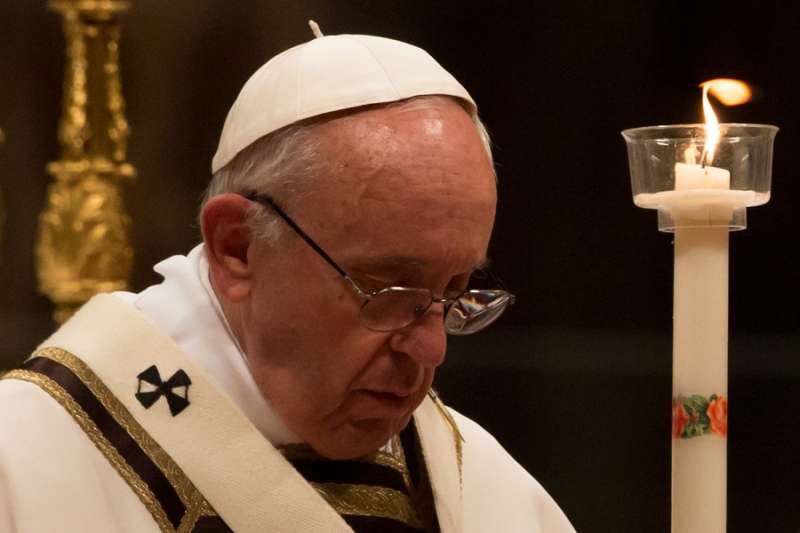To follow Christ is a choice which must be made day in and day out, Pope Francis said Saturday, explaining that to know the Lord means meeting him in one's daily life.
“The God of life is to be encountered every day of our lives; not now and then, but every day. To follow Jesus is not a decision taken once and for all, it is a daily choice,” the pope said Feb. 2, adding that “we do not meet the Lord virtually, but directly, we encounter him in our lives.”
Addressing consecrated men and women, he said, “this is the vision of consecrated life, a simple and prophetic vision, where we keep the Lord before our eyes and between our hands, and not to serve anything else. He is our life, he is our hope, he is our future.”
Pope Francis reflected on encounter with the Lord for the 23rd World Day of Consecrated Life, which takes place every year on the feast of the Presentation of the Lord.
The Feast of the Presentation of the Lord is also sometimes called Candlemas. On this day, many Christians bring candles to the church to be blessed. They can then light these candles at home during prayer or difficult times as a symbol of Jesus Christ, the Light of the World.
The Mass in St. Peter’s Basilica Feb. 2, began with Pope Francis blessing the candles in the rear of the nave. He then processed to the front of the darkened church with priests, bishops and cardinals carrying lit candles. Men and women present in the congregation also held small candles.
The feast of the Presentation is “a feast day of encounter,” the pope said. “What does this mean for us? Above all, that we too are called to welcome Jesus who comes to meet us,” meaning to place him at the center, as the “beating heart of everything.”
Francis recalled a part of the day’s Gospel, and the repetition of the phrases “according to the law” and “in the Spirit.” At the presentation of Jesus in the temple, Mary and Joseph “run to the temple, called by the law” and Simeon and Anna are “moved by the Spirit,” he said.
“What does this twofold call, by the law and by the Spirit, mean for our spiritual life and our consecrated life?” he asked. “It means that we are all called to a twofold obedience: to the law – in the sense of what gives order to our lives – and to the Spirit, who does new things in our lives.”
He illustrated this point using the Wedding at Cana. Mary tells the servants to “do whatever he tells you,” in other words, requesting obedience. Jesus then asked them to fill six stone water jars, which takes time and effort and likely seemed pointless at the time, since the wedding needed wine, not water.
“And yet, precisely from those jars filled ‘up to the brim,’ Jesus draws forth new wine,” Pope Francis said. “And so it is for us: God calls us to encounter him through faithfulness to concrete things: daily prayer, Holy Mass, Confession, real charity, the daily word of God.”
Consecrated life requires concrete things, he explained, such as obedience to one’s superior and to the rules of consecrated life.
He said: “If we put this law into practice with love, then the Spirit will come and bring God’s surprise, just as in the temple and at Cana. Thus the water of daily life is transformed into the wine of newness, and our life, which seems to be more bound, in reality becomes more free.”
And the strength and courage to carry this out is found in encounter with Jesus, he noted, explaining that it is important to always return to the source of one’s vocation, “to retrace in our mind the decisive moments of encounter with him, to renew our first love.”
“This would be good for our consecrated life,” he advised, “so that it does not become a time that passes by, but rather a time of encounter.”
“Consecrated life is not about survival, but new life. It is a living encounter with the Lord in his people. It is a call to the faithful obedience of daily life and to the unexpected surprises from the Spirit. It is a vision of what we need to embrace in order to experience joy: Jesus,” he concluded.

